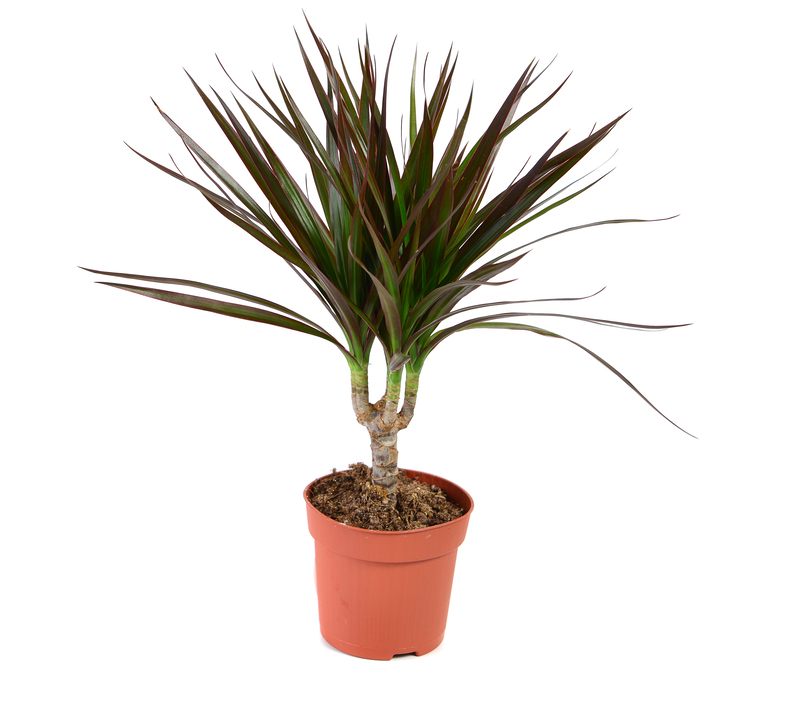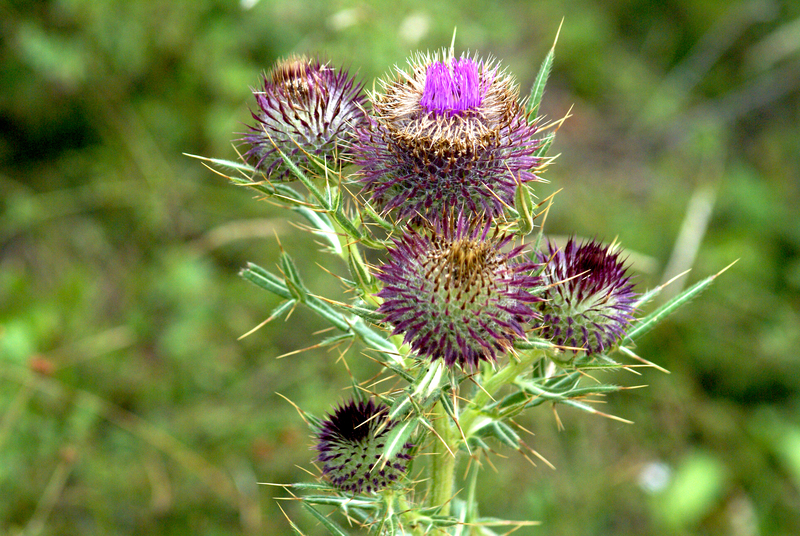Expert-Approved Plants for Garden Privacy and Style
Are you dreaming of a garden that feels secluded from prying eyes while also delivering a vibrant, stylish landscape? You're not alone! Many homeowners seek that perfect blend of privacy and curb appeal. With the right screening plants, you can transform open spaces into intimate outdoor sanctuaries while adding architectural character and color to your yard.
This guide dives into expert-approved choices for privacy plants--from fast-growing hedges to flowering beauties and evergreen shrubs. We'll break down their best uses, maintenance needs, height potential, and top styling tips so you can select the perfect garden plants for privacy and style.
Why Plants are the Best Choice for Garden Privacy
Privacy fencing and walls provide immediate screening, but they lack the organic beauty and environmental benefits of living plants. Choosing the right privacy plants for gardens offers numerous advantages:
- Visually appealing: Lush greenery and flowers soften boundaries and add seasonal interest.
- Eco-friendly: Plants absorb carbon dioxide, produce oxygen, support wildlife, and reduce noise pollution.
- Flexible choices: Select from tall hedges, airy grasses, or flowering shrubs to suit your landscape style.
- Cost-effective: Over time, living screens can be less expensive and need less maintenance than hard fencing.
- Year-round appeal: Evergreens provide privacy even in winter, while deciduous plants offer beautiful blooms and fall color.
How to Choose the Right Privacy Plants for Your Garden
Selecting the best screening plants involves understanding your unique site conditions and style preferences. Consider:
- Climate: Check your USDA hardiness zone to choose plants that thrive in your area.
- Sunlight: Does your privacy screen spot get full sun, partial shade, or deep shade?
- Height and spread: Tall, narrow options work for urban lots; wide-spreading shrubs suit larger yards.
- Growth rate: Need quick privacy? Seek fast-growing varieties, but be mindful of maintenance.
- Evergreen vs. deciduous: Evergreens offer dense, year-round privacy; deciduous plants add seasonal color but may be see-through in winter.
- Watering needs: Match plant choices to your local rainfall and willingness to irrigate.

Top Expert-Approved Plants for Privacy and Style
Let's explore the top-rated options recommended by landscape designers and horticulturists. For each, we'll highlight key features, styling ideas, and care notes.
1. Arborvitae (Thuja occidentalis and hybrids)
Why Choose Arborvitae for Screening?
- Fast-growing evergreen with a classic, formal look
- Dense, upright foliage provides year-round privacy
- Varieties reach from 8 to 50 feet tall, perfect for narrow or wide spaces
The 'Emerald Green' arborvitae is a favorite for narrow screens, while 'Green Giant' reaches up to 40 feet for large-scale privacy. Plant them in a row 3 to 5 feet apart for a quick, lush hedge.
Care: Full sun to part shade; moist, well-drained soil; prune in early spring if needed.
Styling Tip: Underplant with hostas, ferns, or spring bulbs for added color and texture at ground level.
2. Bamboo (Clumping varieties only)
Bamboo for Stylish Privacy Screens
- Instant tropical vibe in both modern and classic gardens
- Many clumping types (e.g., Fargesia) are non-invasive and manageable
- Rapid growth can achieve height and density fast
Unlike running bamboo, clumping varieties stay in place and make excellent privacy hedges in just 2-3 years. Their swaying canes and fine-textured leaves deliver year-round screening and movement.
Care: Prefers partial shade but tolerates sun; regular watering; mulch well. Avoid waterlogged spots.
Styling Tip: Mix with bold foliage plants like cannas or elephant ears for a lush, resort-style oasis.
3. Privet (Ligustrum species)
Classic Choice for Traditional and Cottage Gardens
- Quick-growing, easily shaped into a dense hedge
- Deciduous in cold zones but mostly evergreen in warmer climates
- Small white flowers in summer, attractive black berries in autumn
Privet is beloved for its versatility and fast-rising privacy. It's highly tolerant of pruning and can be kept formal or left more natural. In mild climates, it's evergreen and provides screening all year.
Care: Sun or part shade; tolerates various soils; trim several times per year for a tidy appearance.
Styling Tip: Add romantic flowering climbers--like clematis--through the hedge for a whimsical touch.
4. Leyland Cypress (Cupressocyparis leylandii)
Ultimate Fast-Growing Privacy Tree
- Can grow 3-4 feet per year! Quickly forms a tall, evergreen barrier
- Elegant blue-green foliage; excellent windbreak
- Suitable for large properties and long boundaries
If you need a privacy wall in two to three years, Leyland cypress is a go-to. Regular trimming keeps their growth in check and maintains neat lines, but they can reach over 50 feet if unchecked.
Care: Full sun; well-drained soil; prune annually to desired height and width.
Styling Tip: Use as a backdrop for perennial borders or cut into geometric shapes for a modern look.
5. Holly (Ilex species)
Evergreen Elegance with Year-Round Interest
- Dense, prickly leaves deter intruders and offer privacy
- Red or orange berries in winter attract birds
- Many types available--from small-leafed Japanese holly to stately American holly
If you seek stylish privacy with wildlife value, consider holly hedges. Many varieties are shade-tolerant and maintain their leaf color even in harsh winters.
Care: Adaptable to sun or shade; prefers acidic soil; trim as needed.
Styling Tip: Pair with evergreen boxwood or variegated euonymus for a designer mixed hedge.
6. Boxwood (Buxus species)
Formal Low-Hedge Privacy
- Preferred for small spaces and tightly clipped, formal hedges
- Stays compact; great for defining garden rooms or patios
- Tolerates sun and shade
Boxwood is synonymous with elegant structure. While not the tallest, it's ideal for privacy screening around seating areas, pools, or patios.
Care: Moist, well-drained soil; prune in mid to late spring; keep an eye out for boxwood pests or diseases.
Styling Tip: Intermix with dwarf lavender or scented herbs for beauty and fragrance.
7. Flowering Viburnum (Viburnum tinus, V. opulus, etc.)
Privacy with Four-Season Interest
- Thick, often evergreen foliage forms robust screens
- Delightful clusters of white or pink flowers in spring
- Many with bright berries and red fall color
Viburnums are durable, low-maintenance, and add a touch of luxury. Choose from evergreen types (like Viburnum tinus) or those with spectacular fall color (like V. opulus).
Care: Full sun to part shade; tolerates various soils; prune after flowering if shaping is needed.
Styling Tip: Layer with spring bulbs and underplant with low-growing shrubs for extra depth and privacy.
8. Ornamental Grasses (Miscanthus, Pampas, Feather Reed Grass)
Modern, Airy Privacy Screens
- Graceful, tall grasses up to 8 feet tall with feathery plumes
- Low-maintenance, drought-tolerant, and fast-growing
- Adds motion and sound to the garden
For a softer, more naturalistic privacy solution, opt for clumps of ornamental grasses along boundaries or around patios. They provide partial screening and blend perfectly with contemporary or prairie-style gardens.
Care: Full sun; most types thrive in well-drained soil; cut back in late winter to encourage spring growth.
Styling Tip: Combine with flowering perennials--like echinacea or black-eyed Susans--for yearlong color and texture.
9. Photinia (Photinia x fraseri 'Red Robin')
Colorful, Evergreen Privacy
- Stunning bright red new growth in spring turning glossy green
- Can be shaped into hedges or screens up to 12 feet tall
- Tolerates urban pollution and seaside locations
Photinia is a top pick for those wanting evergreen privacy with extra flair. The flash of red young leaves is a highlight from early spring into summer.
Care: Full sun; tolerates various soils; prune after the first flush of red growth for best color and shape.
Styling Tip: Use as a feature hedge, or combine with spring-flowering shrubs for a truly striking border.
10. Laurels (Cherry Laurel, Portuguese Laurel, Mountain Laurel)
Robust, Versatile Evergreen Hedges
- Large, glossy leaves block noise and create instant privacy
- Fast-growing, easy to shape, and low-maintenance
- Cherry laurel is especially popular for tall boundary screens
For those wanting thick, impenetrable, evergreen hedges, laurels are often recommended by landscape pros. They tolerate shade and harsh conditions, making them suitable for many settings.
Care: Sun or shade; well-drained soil; prune in late spring or early summer for the best results.
Styling Tip: Interplant with variegated forms for added color and interest.
Clever Garden Privacy Design Ideas
Beyond selecting the right privacy plants, how you position them makes all the difference:
- Stagger plantings in two or three rows for maximum density and visual depth.
- Mix heights and plant types to create a more natural, layered look--add tall trees, mid-size shrubs, and ornamental grasses together.
- Add a living wall or vertical trellis draped with climbing vines like clematis, star jasmine, or honeysuckle for instant height and seasonal blooms.
- Incorporate seasonal color by punctuating your green wall with flowering shrubs, bulbs, or annuals for year-round interest.
Frequently Asked Questions about Garden Privacy Plants
Which privacy plant grows fastest?
*Leyland cypress, privet, and 'Green Giant' arborvitae* are among the fastest-growing privacy plants for gardens. Ornamental grasses like Miscanthus can also create quick, seasonal screening in a single year.
What are the best evergreen plants for privacy?
*Arborvitae, holly, boxwood, cherry laurel, and photinia* are standout evergreen options for year-round privacy and garden style.
What privacy plants work in shade?
*Yew, holly, cherry laurel*, and some bamboo varieties thrive in partial to full shade environments, offering privacy screening where sun-loving plants can't survive.
Are there stylish flowering options for privacy?
*Viburnum, lilac, hydrangea, and camellia* shrubs provide both privacy and beautiful blooms. Train climbing roses or star jasmine on trellises for vertical floral screens.

Final Tips for Successful Privacy Planting
- Start with healthy, quality plants from reputable nurseries for best results and fewer problems down the line.
- Space according to mature size for dense coverage while minimizing disease and overcrowding.
- Mulch and water regularly to help young screening plants establish quickly.
- Prune as needed to maintain desired height, shape, and density to keep screens attractive and manageable.
- Mix plant varieties for improved resilience and visual impact.
With expert-approved privacy plants and thoughtful design, your outdoor space can feel like a private retreat while looking lush, stylish, and inviting.
Conclusion: Transform Your Garden with Plant-Based Privacy and Style
Achieving privacy in the garden doesn't mean sacrificing style--it's an opportunity to create living walls filled with lush foliage, flowers, and seasonal interest. Whether you crave a stately row of arborvitae, whimsical grasses, or an exuberant mixed hedge, the plants highlighted above offer options for every taste and need.
Follow expert advice, combine forms and textures, and don't be afraid to experiment with combinations until you find your perfect green sanctuary!
Ready to transform your outdoor space? Visit your local nursery or consult with a landscape designer to map out a garden privacy plan made just for you. The right privacy plants will reward you with beauty, tranquility, and years of enjoyment.